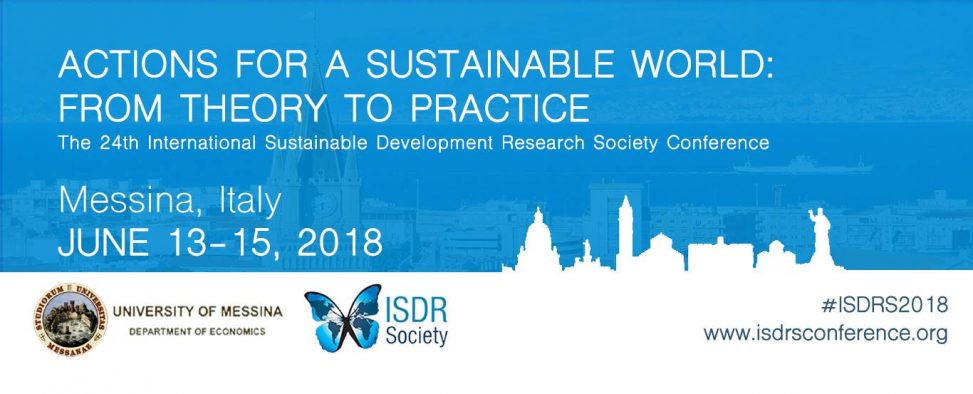El 15 de junio de este año, el Programa se hará presente en el International Sustainable Development Research Society Conference, en Messina, Italia, organizado por la ISDR Society y la Universidad de Messina; que, en su versión 24°, abordará el tema “Actions for a Sustainable World: From Theory to Practice”.
Gerardo Saelzer C. será el encargado de presentar el paper titulado “Towards an Integral Heritage Rehabilitation: A Case Study of a Wooden City in Southern Chile, Valdivia”, elaborado en conjunto con Antonio Ruiz-Tagle M., Jilan Hosni y Mina Fallahzadegan; todos miembros del Programa.
Presentación y paper del Programa
Programación de la conferencia
Towards an Integral Heritage Rehabilitation: A Case Study of a Wooden City in Southern Chile, Valdivia
In Southern Chile, historical sites declared as Typical Zones (TZ) – Zonas Típicas – are subject to conflicts that brings up serious concerns on heritage restoration regarding land use management of surrounding areas. New challenges are set regarding the definition of heritage value to include the physical, cultural, morphological and economic contexts. As the emergence of primary rural and urban settings built out of wood, current historic settlements are named as “Wooden Cities” with 150 years old. Management conflicts are apparent whereas heritage administration is scattered and segmented between many institutional agencies and lack of unity in sites that are characterized to serve public interest as a whole. In correlation with the national regulation framework on heritage conservation, heritage values (HV) are categorized in factorial assets opens the door for developing opportunities for cultural heritage and urban context objectives. The research presents an empirical case study launched was a call for valorizing the TZ in Valdivia during the planning intervention of a mandated bridge construction by the Ministry of Public Works, where its access is planned to use part of that historical area. Through the empirical, multifocal and qualitative analysis, cross-disciplinary research diagnosis, focuses on a case study of Wooden Cities. This could help in enhancing the quality of strategic plans and provide solutions to insure an integral development. Furthermore, the pragmatic research, analysis and outcomes helps to understand that several entry points can be used to both, develop and conserve a protected area in benefit of cultural landscape of the Wooden Cities. Through interpreting the protected site as a dynamic context, a local model could be initiated for Wooden Cities. Last but not least, the diachronic analysis and the association to positive externalities establishes alignment within global framework and sustainability measures.


1 Comment
1 Pingback